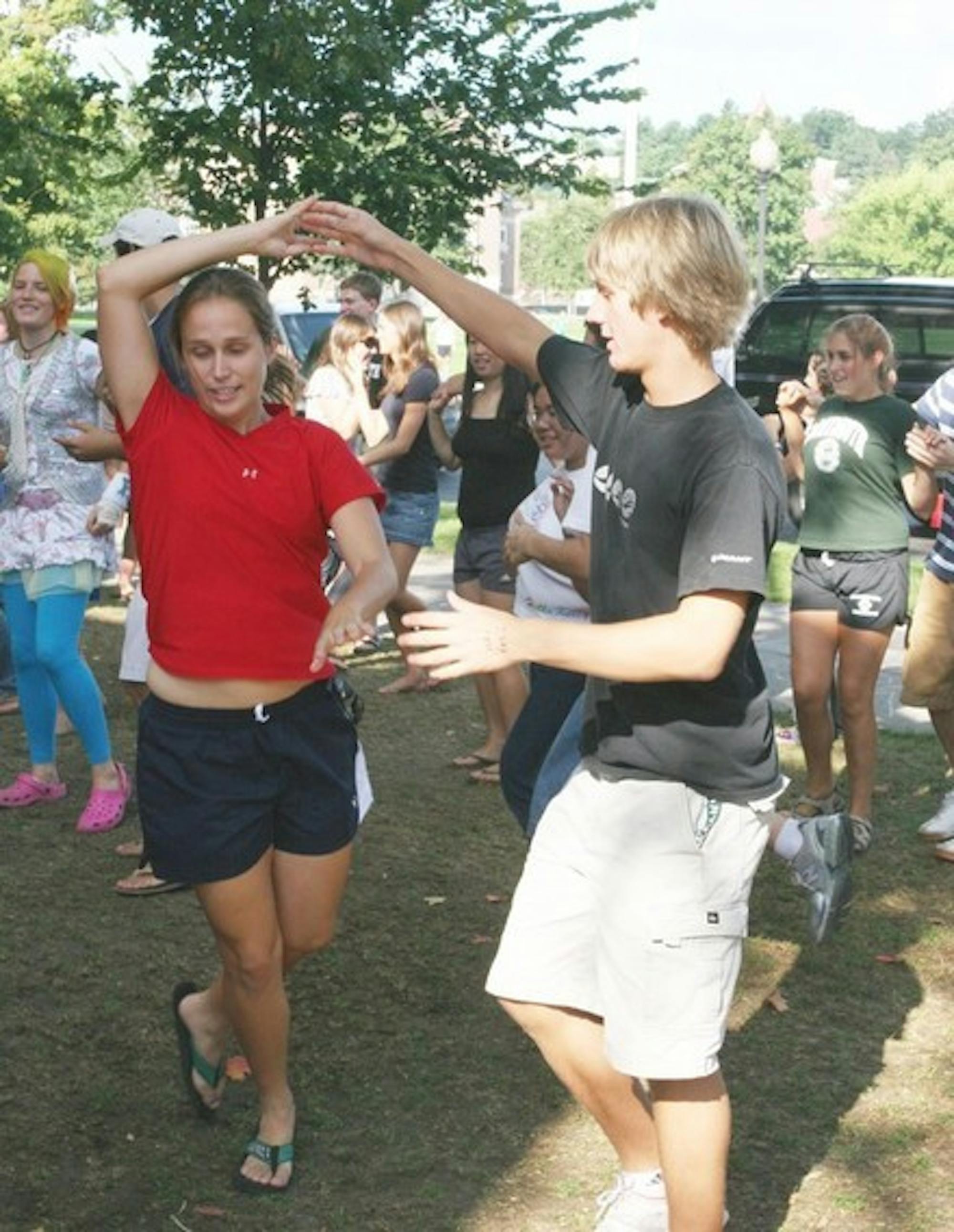This high-profile move comes after J.B. Daukas, an architect of the proposed constitution, twice sought the input of the three trustees in the months between the release of the final draft of the proposed constitution and the deadline after which the proposal could not be changed. None of the three -- all of whom have vehemently opposed the proposal -- took Daukas up on his offer.
For months it has been common knowledge that these former petition candidates and current Trustees disapprove of the proposed constitution. They made clear their views in an article that ran in The New York Times on June 21 in which Robinson said of the proposal, "This is as much a reform as when Joseph Stalin decided to hold elections in Eastern Europe."
June 15 was the final day changes could be made to the proposal.
In an e-mail sent to the three trustees dated April 7, Daukas wrote, "If you engage us and we come up with a product you like, then everyone wins. If you engage us and we still do not put forth a constitution that is acceptable to you, you are always free to oppose it. So you cannot lose."
"We bent over backwards to get these guys on board," Daukas said. "Those guys didn't work with us at all."
When asked in an interview with The Dartmouth why they decided not to give their input to the Alumni Governance Task Force, the group that drafted the constitution, Zywicki and Robinson pointed to a confidential letter Rodgers sent to the AGTF in the fall opposing the September 2005 draft of the proposed constitution. In the letter, Rodgers vowed to oppose any constitution that would result in "weakening or emasculating the Trustee petition process" or "reducing any of the current very-modest rights of Alumni Association members."
All three signed a brief statement promising a "major confrontation" if such a constitution were brought to a vote.
The Dartmouth soon thereafter printed an article about the letter after it had been leaked by an unknown source.
In an interview with The Dartmouth on Tuesday, Robinson said he did not respond to Daukus' requests for feedback because his first attempt to do so had been met with ill will and the leaking of the letter, and he did not want to meddle in the deliberations of the drafting group he was not a part of.
Robinson said he had already made his views clear in the fall letter.
The February draft of the constitution proposed a new method of electing alumni Trustees. When asked how the AGTF could have known that he thought this new system proposed in February weakened the Trustee petition process, Robinson did not provide an answer.
According to Daukas, Rodgers accused the AGTF of being the source of the leak, a claim Daukas called unrealistic.
"The last thing in the world we wanted was for three influential trustees who have a loyal base of support to publicly come out against us. Indeed, your base of support may well be enough to defeat the new constitution," Daukas wrote in an email to Rodgers.
Rodgers said that he did not provide Daukas his input because he felt it inappropriate for the AGTF to deal with him individually instead of with the Board as a whole.
Zywicki added that the three had already been accused of meddling in the affairs of the AGTF and that it was clear that any further communication between himself and the AGTF would be unproductive.
"It was clear to us that they did not want to hear from us," Zywicki said.
Daukas said that the AGTF made it clear that the opposite was true.
Since the proposed constitution would merge the Alumni Council and the Association of Alumni, both bodies needed to ratify the constitution for it to pass. The Council was to vote on it in May -- months before the September vote by the Association.
According to Daukas, the AGTF made a rare proposal to the Council asking them to accept the constitution even if minor alterations were made between their vote and the Association's. That proposal pushed the final deadline for the proposed constitution from before the Council's vote to June 15.
Daukas said that the Council reluctantly accepted the proposal, which was made "for the explicit purpose of making changes proposed by the petition trustees."
One of the e-mails sent to the three Trustees by Daukas, who himself previously has run for president of the Association as a petition candidate, outlined his goals for the Trustee voting system. In it, he told the three Trustees that he hoped to ensure that anyone elected to the Board would be elected by a majority, not just a plurality.
When asked why he thought such correspondence would not interest Rodgers, Robinson and Zywicki, Daukas proposed one possibility of his own: "They see that they've been able to get elected to the Board of Trustees under the current system and that they want to make sure that other people like them can get elected whether it's fair or not."




